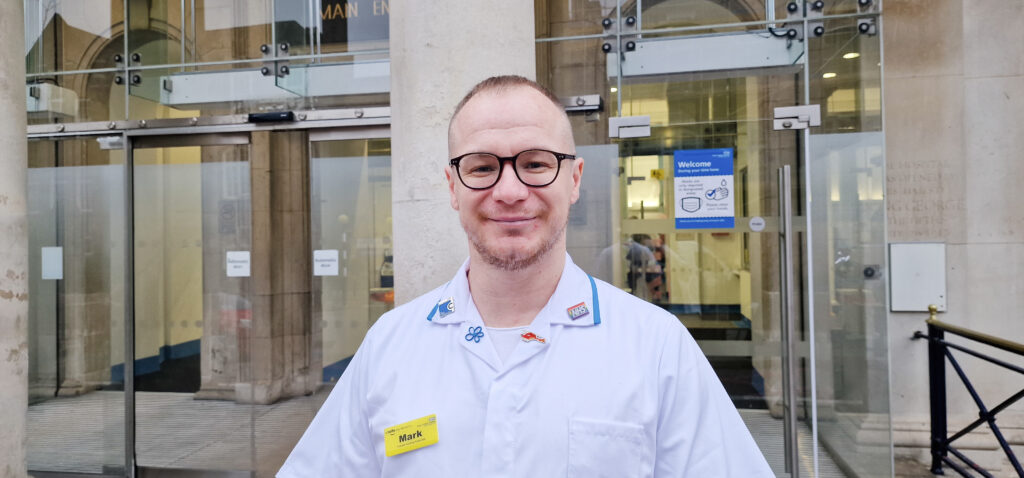King’s marks LGBTQ+ History Month
08 February 2023 - Trainee Nursing Associate, Mark, explains the ways in which he cares for LGBTQ+ patients

February is LGBTQ+ History Month, a time to celebrate and recognise the contributions and accomplishments of the LGBTQ+ community. This year’s theme is #BehindTheLens, highlighting the ways in which the community has been represented and viewed through the lens of history, media, and society.
As part of this celebration, we spoke with Mark, a trainee Nursing Associate at King’s College Hospital, about his outstanding care for LGBTQ+ patients and the impact he has made on the teams he works with. Mark’s story is a powerful reminder of the importance of representation and inclusion in healthcare, and the positive difference one person can make.
Why is marking LGBTQ+ History Month important?
LGBTQ+ History Month is important because it’s a time to reflect on how we have evolved over time, during which many have fought for the rights for our community to be recognised as one in society – from the first Pride march to same sex couples being able to marry. It’s a time for me to appreciate being able to come to work, be myself, and feel comfortable and confident.
What changes have you made to the service to improve the care and experience for LGBTQ+ patients at King’s?
On our ward we look at previous experiences where things haven’t gone quite right and look at how we could do things differently. We have a ward that has a lot of diversity, and our team is curious of one another’s beliefs, cultures, community, and way of life. We are open to hear from one another so we can provide an equal service where people feel comfortable and we provide a good experience for our patients.
Why are these changes important?
These changes are important because they give others that are not from the LGBTQ+ community an education and knowledge that they may not have or ever come across in an open and honest environment. It gives them confidence to be more curious with our patients to understand their needs and offer a better and more equal experience.
Has there been a patient who has had a positive experience with these changes? If so, what was their experience?
Yes, one that comes to mind was a trans woman who previously was placed in a male bay, and feedback was that she wasn’t given the opportunity to choose. This time there was an honest discussion, including the discomfort other patients felt. She was moved to a private room and felt that the experience was better because there were no surprises, there was honesty and openness in the situation.
Do you have a memorable moment with a patient, highlighting inclusive care?
Yes, one patient had received some bad news, and one of our team had seen him very upset and distressed. He had no family to turn to so my colleague asked me to take him outside and check in with him. It is quite common to meet older gay men with no family in their later years, so I sat with him, listened to him and we became family. He shared so many interesting stories of time in the 70s and 80s, and this made him feel some peace, and although he still had the bad news there were times of laughter and reminiscing, which was enjoyed by the two of us.
